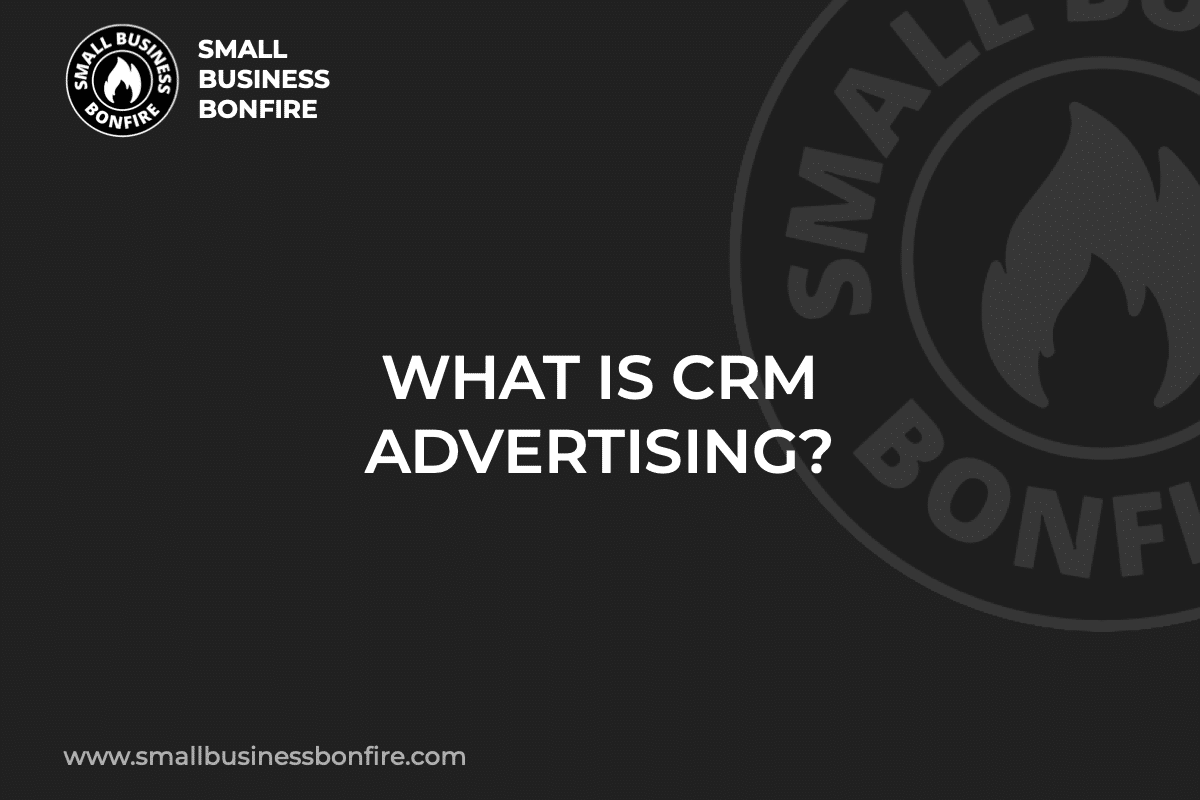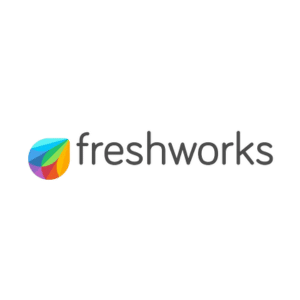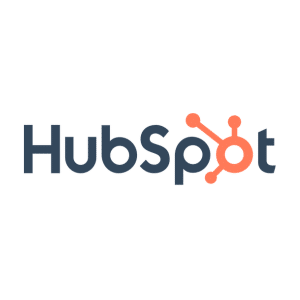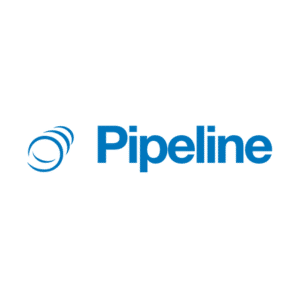Does your business have a high-functioning customer relationship management (CRM) system yet still has difficulty reaching new customers?
You’re probably not utilizing CRM advertising software correctly.
Hi! My name is AJ. I’ve been using CRM platforms for several years, allowing me to build and scale my business. Throughout my time, I’ve learned the ins and outs of CRM tools.
I’ve compiled this guide so our readers can learn about customer relationship management, advertising, and growing their businesses!
What do you need to know about advertising with CRM software? Keep reading to find out!
Key Takeaways
- CRM advertising combines your customer information with marketing techniques like social media to simplify managing customer relationships.
- CRM advertising ensures your company generates high-quality leads and improves customer retention rates.
- Creating personalized content forms better customer connections, eventually leading to higher customer retention rates.
- Popular marketing channels include social media outlets, search engine marketing, and email advertising.
Related Reading: Small Business CRM
SBB Featured Partners
What is a CRM (Customer Relationship Management)?
What is a CRM? Customer relationship management (CRM) technology helps your business manage and improve customer relationships with existing and potential clients.
CRM platforms aim to improve business relationships. As a result, your business grows!
Some of the things a CRM platform helps your business achieve include the following:
- Connect to customers
- Collect, organize, and utilize customer data
- Streamline process
- Automate repetitive tasks
- Improve profitability
Put simply, CRM data is powerful because it provides an in-depth look into your customer’s behaviors and interests.
Because you understand your customer base better, you can create targeted sales and marketing campaigns that encourage sales!
What is Advertising?
Advertising is a technique businesses use to attract public attention to a specific product or service.
Therefore, advertisements communicate which product, service, or message a company wants to attract more attention.
Advertisements are important because they’re a guaranteed way to reach an audience.
Further, when you utilize a CRM database, you can run targeted ads that certain groups of people can relate to. As a result, they are more likely to buy your products or services.
Many companies use advertising to improve brand awareness and sell more products or services (which your CRM platform can help).
What is CRM Advertising?
CRM advertising connects marketing technology with social media outlets and advertising networks.
As a result, businesses leverage customer data to create personalized advertising experiences across various platforms.
Some of these platforms include the following:
- Social media outlets (Twitter, Instagram, Facebook, etc.)
- Television
- Radio
- Mobile app
- Website
CRM advertising focuses on each customer’s experience. Therefore, your business must aim to engage with potential and existing customers at multiple touchpoints.
For example, only targeting a customer segment on social media isn’t enough. You must create a unique customer journey across numerous digital channels, encouraging multiple customer interactions!
What Does an Advertising CRM Software Do?
CRM advertising software utilizes customer data to make it easier for businesses to run targeted marketing campaigns.
Further, CRM tools collect customer information, including the following:
- Demographics
- Buying patterns and behaviors
- Interactions with the company
- Interests
Using this data, CRM systems segment customers, allowing your company to create personalized ads that align with their interests.
Customer segmentation allows businesses to create ads and marketing efforts based on each group’s likes.
For example, suppose one customer segment proves they are likelier to purchase products with a limited selection. In that case, a company pushes social media and email marketing messages to notify them of limited-edition products.
On the other hand, a different customer segment might be more inclined to purchase products or services if they see a celebrity using them.
How Does CRM Advertising Work?
CRM advertising uses customer data a CRM system collects to form and manage customer relationships and interactions between a brand and its customers.
Therefore, CRM advertising relies on the information within CRM software, so keeping your data clean and updated is important.
Using the most up-to-date customer information ensures your CRM marketing strategy is accurate and targeted.
Personalized advertisements build a better customer experience and encourage customers to visit your company virtually or in person.
And after attracting these leads, you can guide potential customers through your sales process, eventually converting them to paying customers!
Benefits of CRM Advertising
CRM advertising has several benefits you must be aware of. Once you know these advantages, you’ll want to implement the software immediately!
Personalized Customer Experiences
CRM advertising ensures your business personalizes its customers’ experiences.
Remember, CRM systems provide a lot of information you can use to your advantage.
CRM tools collect the following pieces of customer info:
- Contact information
- Demographics
- How they have interacted with your brand
- If/when they have purchased something
- Marketing techniques they prefer
Customers value personalized experiences and are more likely to purchase a company’s products or services if they have a good experience.
Better Customer Relationships
CRMs can improve customer relationships significantly.
How?
When you understand your customers and can predict the content and products they want, buyers feel your business actually cares about them.
Additionally, a CRM tool ensures each department can access the same information, leading to better sales and customer service processes.
Good customer relationships are vital because they lead to higher customer loyalty rates.
Generate High-Quality Leads
CRM systems help you improve customer acquisition efforts and target high-quality leads by providing real-time data to identify which people prefer your brand’s offerings.
For instance, a CRM platform can create buyer personas to determine who engages with your business and how to target them via paid ads.
Put simply, CRMs generate high-quality leads because they utilize important up-to-date information.
Show CRM Advertising ROI
ROI stands for return on investment. And CRM advertising technology ensures your company spends the right amount on targeted campaigns.
For example, if a business spends $1,000 on ads that result in $500 in sales, these ads aren’t effective.
While a business must spend money to make money, your advertising efforts shouldn’t cost more than the generated sales.
Better Ad Team Communication
Your ad team can communicate more effectively with a CRM tool.
CRMs collect customer preferences and share them across departments to ensure everyone is on the same page.
As a result, marketing and sales teams can access the same information and build a customer journey around that data.
Additionally, many CRMs have built-in company-wide communication platforms, making collaboration easier!
Improved Customer Satisfaction
Again, customer satisfaction rates improve when you implement CRM software because you can access updated information and comprehensive customer profiles.
Therefore, you understand customer behavior, buying history, and interests.
Also, if a customer has a problem, your customer service reps can pull up their buying history and know which product or service they’re discussing.
The faster a company handles customer support issues, the higher the customer satisfaction level!
Optimized Advertising Campaigns
CRM advertising software ensures your marketing campaigns are optimized.
CRMs collect data from customer interactions and segment customers based on their behavior.
As a result, this information enables you to tailor your campaign messages and design ads that will appeal to each audience type!
Better Customer Data
Lastly, a CRM solution gives your business access to better customer data.
Why is CRM data better?
As I previously mentioned, a CRM’s data is the most up-to-date information you can receive because it updates in real time.
Outdated information can significantly impact your sales and marketing teams, resulting in poor predictions and recommendations.
How to Use CRM Advertising to Grow Your SMB
Now that you know the benefits of combining CRM systems with advertising efforts, it’s time to learn how to do it yourself!
Below is a step-by-step guide to using CRM advertising to help your company.
Step 1: Choose a CRM
The first step is choosing a CRM. There are several choices, so knowing what type of CRM your company requires is important.
The three common CRMs include the following:
- Operational CRM systems
- Collaborative CRM systems
- Analytical CRM systems
Further, you and your team must consider the following factors before purchasing a CRM:
- Price
- Ease of use
- Features
- Whether it is general-use or industry-specific
- Third-party integrations
Take your time searching for a CRM; rushing the decision can be costly in the long run.
Step 2: Choose Your Marketing Channels
The second step is determining your business’s marketing channels to advertise and engage customers.
Knowing which marketing channels are most effective for your business is essential to reach the right target audience.
One mistake I’ve made is selecting marketing channels with little research. As a result, my company ran ads that reached people who didn’t need or want our services.
Below I’ve listed three popular marketing channels for small businesses!
Search Engine Marketing
Say you’re looking for a hiking backpack and are unsure where to find the perfect one. Chances are, you turn to Google and type in “Best hiking backpacks.”
Google lists several products and company websites; that’s search engine marketing. When customers type in specific keywords related to your business, you want your website to appear on search engines like Google or Bing first.
Pay-per-click advertisements allow companies to pay for ads only when a consumer clicks on a search engine ad.
You must do keyword research to make this type of marketing effective. Identify phrases that are relevant to your business and that customers search often.
Social Media Advertising
Social media ad spending has steadily increased over the past five years because more people use the platforms!
Some examples of social media outlets your business can advertise on include the following:
- Snapchat
Utilize your CRM database to discover which platforms your target audience uses most and why.
That way, you can pinpoint the correct marketing channels and create targeted marketing campaigns that resonate with your customers.
It’s okay to run multiple ads on different platforms if you’re unsure which is most popular among your target audience. Regularly review the results and adjust your campaigns each week.
Email Marketing
CRM Email marketing is an excellent strategy to maximize your advertising ROI.
Not only does this type of marketing help you nurture your target audience, but it also ensures you create an omnichannel experience.
Whether they’re prospective or loyal customers, studies have proven people are more likely to buy things if they’re part of an omnichannel experience.
For example, when businesses advertise products on social media while creating email campaigns promoting the same product, they’re more likely to get a sale.
Email campaigns also provide customer insights, such as which marketing campaign is most effective and which customer segments gravitate toward certain messages.
Step 3: Segment Your Audience
The third step is segmenting your audience. Segmentation allows you to group consumers into different categories based on specific factors.
Why is grouping customers important?
Grouping your customers ensures you offer tailored advertising and digital marketing techniques for different groups.
For instance, you may group your audience based on customer engagement data (which customers interact on Instagram versus Twitter).
Then, your marketing team can create certain ads on different social media outlets to increase engagement and conversions with potential customers.
Segmentation depends on your business’s goals. So it’s essential to outline your objectives before moving forward.
Step 4: Track the Customer Journey
Targeting the correct audience relies on understanding the customer journey.
Fortunately, there are some simple steps you can take to understand this journey.
First, you and your marketing team must review customer behaviors.
Do you notice any trends? Do customers provide similar feedback about certain products?
Analyze and track as many behaviors as possible to start discovering trends and patterns with your audience.
Additionally, creating a visual representation of the customer journey is essential.
Mapping customer journeys makes it easy to see how customers get into and through the sales pipeline.
In the case of some CRMs, they will track customer touchpoints for you. This process is called attribution (attributing a lead to a lead source).
Step 5: Rinse, Measure, Repeat
The final step in creating a CRM advertising strategy is analyzing your data and adjusting as needed.
Although this sounds simple, I’ve seen several small business owners skip this step!
As a result, they continually run poor-performing ad campaigns simply because they never analyzed the data.
Schedule regular meetings with your marketing and sales team to review advertising and audience data.
From there, you must continually improve your techniques, providing a more personalized advertisement each time.
Best CRMs for Advertising
If you’re ready to build stronger customer relationships, you need a CRM to help you get there.
Below I’ve compiled three incredible CRM providers for small businesses specializing in advertising and marketing content.
Review each company website carefully before investing in software to ensure the price and features meet your business demands.
HubSpot Marketing CRM
HubSpot’s marketing software is ideal for small business owners because it’s easy to use and affordable.
With HubSpot’s technology, your business can drive revenue, streamline processes, and optimize your investments.
Regarding pricing, HubSpot charges the following rates:
- Free Tools: $0
- Starter: $18/Month
- Professional: $800/Month
From automated advertising campaigns to powerful reporting tools, HubSpot’s advanced technology is an affordable way to scale your business.
Are you interested in learning more about HubSpot? Check out our full HubSpot Marketing Hub Review!
Freshmarketer
Freshmarketer is a powerful CRM that’s best suited for eCommerce businesses. You can connect Freshmarketer to popular eCommerce platforms like Shopify and WooCommerce.
My favorite aspect of Freshmarketer is that the platform is affordable, even as your company grows.
For instance, Freshmarketer charges the following rates:
- Free: $0 forever
- Growth: $19 monthly
- Pro: $149 monthly
- Enterprise: $299 monthly
Additionally, Freshmarketer provides several helpful features, including email advertising campaigns, social media campaigns, and contact management software.
Check out our full Freshmarketer Review to learn more!
EngageBay Marketing Bay
EngageBay is a lesser-known CRM provider. Despite that, this company offers CRM software that helps marketing teams implement better ads.
Even EngageBay’s free plan includes tools like email templates, integrations, and segmentations.
And the advanced plans include marketing automation, landing page testing, and custom reporting.
Here are the monthly rates for EngageBay’s CRM software:
- Free: $0 forever
- Basic: $11.04 per user monthly
- Growth: $42.49 per user monthly
- Pro: $67.99 per user monthly
Best of all, EngageBay provides free migration when you change providers!
Do you want to learn more about EngageBay? Our full EngageBay Marketing Bay review is here to help!
The Bottom Line
CRM advertising utilizes in-depth CRM marketing data to form advertising strategies.
As a result, businesses find prospective customers faster, increase customer engagement, and gain insights into the customer lifecycle.
Creating personalized content ensures your business forms better relationships and eventually secures long-term customers.
What marketing platforms does your company find most effective? Let us know in the comments section below!
Good luck finding a CRM marketing strategy for your business’s ads!
Newsletter Signup
Join The Leads Field Guide Newsletter for tips, strategies and (free) resources for growing your leads, and closing more deals.




